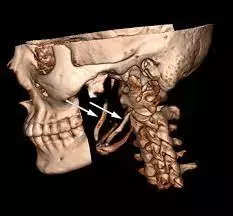- Home
- Medical news & Guidelines
- Anesthesiology
- Cardiology and CTVS
- Critical Care
- Dentistry
- Dermatology
- Diabetes and Endocrinology
- ENT
- Gastroenterology
- Medicine
- Nephrology
- Neurology
- Obstretics-Gynaecology
- Oncology
- Ophthalmology
- Orthopaedics
- Pediatrics-Neonatology
- Psychiatry
- Pulmonology
- Radiology
- Surgery
- Urology
- Laboratory Medicine
- Diet
- Nursing
- Paramedical
- Physiotherapy
- Health news
- Fact Check
- Bone Health Fact Check
- Brain Health Fact Check
- Cancer Related Fact Check
- Child Care Fact Check
- Dental and oral health fact check
- Diabetes and metabolic health fact check
- Diet and Nutrition Fact Check
- Eye and ENT Care Fact Check
- Fitness fact check
- Gut health fact check
- Heart health fact check
- Kidney health fact check
- Medical education fact check
- Men's health fact check
- Respiratory fact check
- Skin and hair care fact check
- Vaccine and Immunization fact check
- Women's health fact check
- AYUSH
- State News
- Andaman and Nicobar Islands
- Andhra Pradesh
- Arunachal Pradesh
- Assam
- Bihar
- Chandigarh
- Chattisgarh
- Dadra and Nagar Haveli
- Daman and Diu
- Delhi
- Goa
- Gujarat
- Haryana
- Himachal Pradesh
- Jammu & Kashmir
- Jharkhand
- Karnataka
- Kerala
- Ladakh
- Lakshadweep
- Madhya Pradesh
- Maharashtra
- Manipur
- Meghalaya
- Mizoram
- Nagaland
- Odisha
- Puducherry
- Punjab
- Rajasthan
- Sikkim
- Tamil Nadu
- Telangana
- Tripura
- Uttar Pradesh
- Uttrakhand
- West Bengal
- Medical Education
- Industry
Dental inflammatory events including root canal treatments linked to rare Eagle Syndrome: Study

Dental inflammatory events including root canal treatments are linked to rare Eagle Syndrome, according to a new study. Eagle syndrome is caused by a calcified stylohyoid ligament (SHL).
The study has been published in the International Dental Journal.
Dystrophic calcification represents a situation in which insoluble mineral salts are deposited in soft tissues, in the absence of an increase in serum calcium and phosphate. This type of calcification has been incidentally detected in the head and neck region in more than 33% of the population.
This researchers conducted the study to investigate the relationship between calcification of the stylohyoid ligaments (SHLs) and odontogenic inflammatory events.
Cone-beam computed tomography scans of 175 patients were retrospectively assessed for the presence of SHL calcifications. Frequencies of 4 types of odontogenic inflammatory events were assessed using the same scans, namely dental extractions, root canal treatments, furcation lesions, and periapical lesions. Patients were telephone-interviewed and asked about histories of tonsillectomy and head and neck trauma. Mann–Whitney U and binary logistic regression tests were used to assess associations between SHL calcification and mean ranks of odontogenic inflammatory events.
Results:
- Calcification of SHLs was detected in 71 (41%) and 58 (33%) patients on the right and left sides, respectively.
- Tonsillectomy and trauma were reported in 14% and 10% of the sample, respectively. Amongst all inflammatory events, root canal treatments were significantly associated with SHL calcification.
- This association was independent from patient age, tonsillectomy, trauma, and other inflammatory events
This study presents new evidence that intra-oral inflammatory events, particularly related to root canal treatments, have a stronger association with SHL dystrophic calcification than that associated with traditional predisposing factors (ie, old age, tonsillectomy, and trauma).
Reference:
Suhail H. Al-Amad, Saad Al Bayatti, Hissa Arif Alshamsi. Stylohyoid Ligament Calcification and Its Association With Dental Diseases. International Dental Journal, 2022, ISSN 0020-6539,
Dr. Shravani Dali has completed her BDS from Pravara institute of medical sciences, loni. Following which she extensively worked in the healthcare sector for 2+ years. She has been actively involved in writing blogs in field of health and wellness. Currently she is pursuing her Masters of public health-health administration from Tata institute of social sciences. She can be contacted at editorial@medicaldialogues.in.
Dr Kamal Kant Kohli-MBBS, DTCD- a chest specialist with more than 30 years of practice and a flair for writing clinical articles, Dr Kamal Kant Kohli joined Medical Dialogues as a Chief Editor of Medical News. Besides writing articles, as an editor, he proofreads and verifies all the medical content published on Medical Dialogues including those coming from journals, studies,medical conferences,guidelines etc. Email: drkohli@medicaldialogues.in. Contact no. 011-43720751


